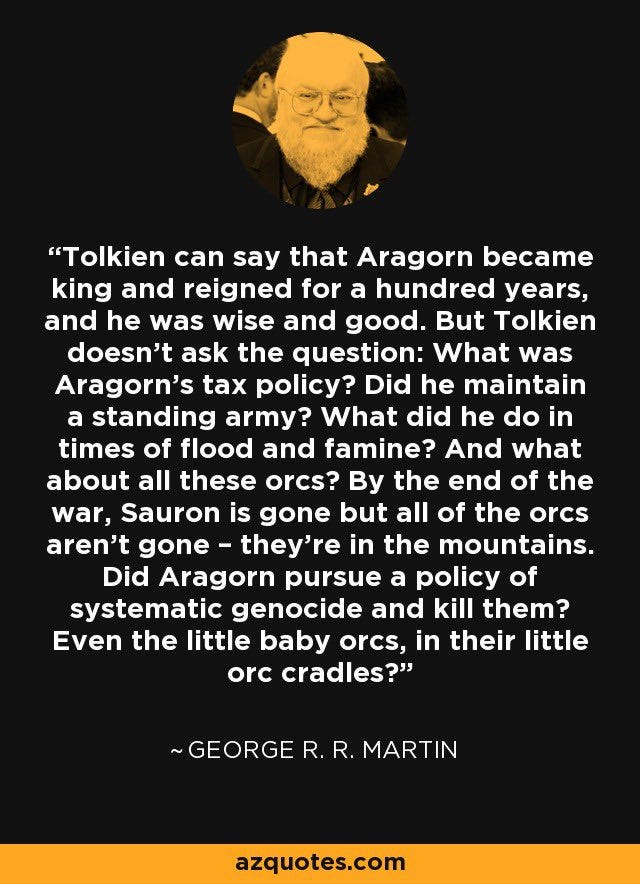Okay, to be honest I didn’t actually want to write this article. The trouble is that Martin’s whiny comment about tax policies and Orc genocide are making the rounds over on twitter, I myself was asked to weigh in, and did so several times, so from now on when asked I’ll just refer people to this article and save myself some trouble and time.
Truth is, this lack of proper knowledge or willingness to go on offense in defence of Tolkien bugs me. Because not only did Tolkien FULLY lay out Aragorn’s tax policy, but he also made it clear what happened to the Orcs. What follows is what I posted on twtitter (with some minor changes).




